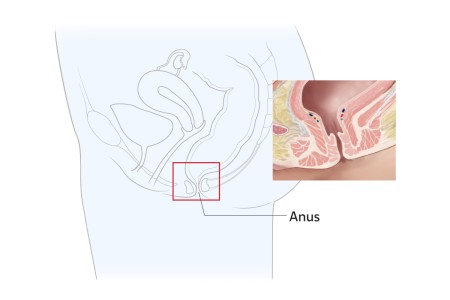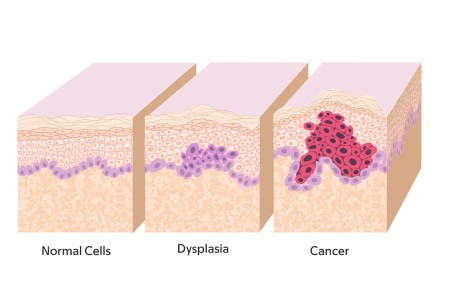What is anal dysplasia?
Anal dysplasia is a condition that happens when some of the cells in your anus have changed. These are called abnormal (not normal) cells. Your anus is the opening where your bowel movements (also known as poop) come out. It’s important to know if you have anal dysplasia because it can become anal cancer.

HPV and anal dysplasia
HPV is the most common virus that is sexually transmitted (you can get it when you have sex). Many people have HPV but don’t know it. In most people, the virus is not active in the body.
For some people, HPV infection can lead to certain types of cancer. These include cervical cancer, vaginal cancer, head and neck cancer, and anal cancer.
About 9 out of every 10 cases of anal cancer are caused by HPV. Your risk of getting anal cancer from HPV depends on the kind of HPV you have. There are more than 200 kinds of HPV. Some cause warts on the skin, mouth, or genitals, but rarely lead to cancer.
The kind of HPV most often linked to anal cancer is called HPV 16. Your risk of anal cancer is higher depending on the kind of HPV you have. See What You Can Do To Prevent Cancer Caused by HPV for more information on screening and testing for HPV.
You may also be at risk if you:
- Smoke cigarettes.
- Have sex with many partners.
- Have anal sex.
- Have lower immunity. This can be from an HIV infection or because you take medicines that suppress your immune system.
- Have chronic (long-term) anal irritation from conditions such as an anal fistula or benign (not cancer) anal lesions.
- Have had other cancers, such as penile, cervical, vaginal, or vulvar cancer.
- Are over age 50.
- Were assigned female at birth.
What are the symptoms of anal dysplasia?
Most people don’t know they have anal dysplasia, but there are some symptoms to look out for. Anal dysplasia is often found during a physical exam by your healthcare provider. Talk with your healthcare provider about whether you should be tested for anal dysplasia. See your healthcare provider if you have any of these symptoms:
- Pain or itching in your anus.
- Bleeding from your anus.
- You feel a growth or bump in your anus.
What tests are done to find anal dysplasia?
Your healthcare provider may do these tests to see if you have anal dysplasia:
- Digital rectal exam. Your healthcare provider will use a finger to feel for any tumors or abnormal areas in your anus and rectum.
- Anal Pap smear. Your anus is swabbed and a sample of your cells are sent to a lab for testing.
- Anoscopy. A small tool with a light at the end is used to see inside your anus and rectum. This test looks for any lumps or abnormal tissue.
- High Resolution Anoscopy (HRA). This type of anoscopy uses a microscope and special dye to better see parts of your anus and rectum.
Depending on your test results, your healthcare provider may do more testing or refer you to our anal dysplasia team at MSK.
How is anal dysplasia related to anal cancer?
Anal dysplasia is not cancer, but can become cancer. Normal cells in your anus can become abnormal (not normal) and this could lead to anal cancer.

The risk factors for getting anal dysplasia and anal cancer are the same. There are many risk factors, but the most common is having HPV (human papillomavirus). Talk with your healthcare provider about your risk and getting tested for anal dysplasia.

